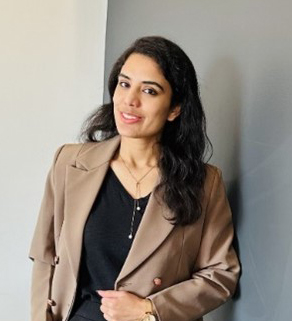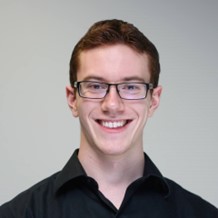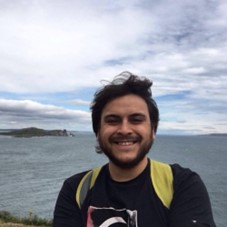Three Lassonde School of Engineering PhD candidates in civil engineering have been recognized – two with awards and one with publication approval – for work in environmental research that promises to help right the future.
The award-winning students are:
Gurpreet Kaur, third-year PhD candidate

In May 2023, Kaur presented research focusing on microorganisms to degrade harmful contaminants in groundwater at the International In-Situ Thermal Treatment (i2t2) Symposium in Banff, Alta., where she was honoured with a Best Presentation Award.
More than nine million people in Canada depend on groundwater as their primary source of drinking water. If groundwater is contaminated, pollutants can reach consumers and cause harmful effects like cancer and other diseases,” she says. Kaur specifically studies biomediation, a process that uses microorganisms that are naturally present in the subsurface to degrade environmental pollutants. However, the activity of these microorganisms may be hindered by cool temperatures below ground. To solve this issue, some remediation strategies supplement the subsurface with heat, but that can be an expensive process.
“My work analyzes the effect of geothermal heat pumps on bioremediation,” says Kaur. “This is a sustainable and cost-effective solution that can help enhance the growth and activity of microorganisms.” In addition to improving the efficiency of bioremediation, geothermal heat pumps can be used to provide heating and cooling to surrounding buildings, thereby serving two functions at once.
To explore the effects of geothermal heat pumps on bioremediation, Kaur isolated and analyzed two pollutant-degrading bacteria strains from geothermal borehole soil samples. Her analysis showed the strains have the ability to degrade Benzene, Toluene, Ethylbenzene and Xylene (BTEX), four common chemical contaminants found in groundwater. She also applied heat to these pollutant-degrading bacteria, which resulted in significantly increased bacterial growth and BTEX degradation rate, suggesting the inherent beneficial effects that geothermal heat pumps may have on bacteria. The results of Kaur’s work demonstrate the great promise of this modified method for bioremediation, which could ensure clean drinking water for millions of Canadians.
Michael De Santi, second-year PhD candidate

De Santi received an award for an outstanding presentation, given at the European Geosciences Union General Assembly in Vienna, about his research focusing on developing the Safe Water Optimization Tool (SWOT) using machine learning methods.
De Santi’s research aims to develop and implement data-driven solutions for water safety issues in refugee and internally displaced person (IDP) settlements with SWOT. Primary sources of drinking water in these settlements are highly susceptible to contamination, which creates a risk for people to contract waterborne disease upon consumption.
To decontaminate drinking water and mitigate disease risk, free residual chlorine is used as a water treatment; however, this can significantly alter its odour and taste. Using data collected from a refugee settlement in Uganda called Kyaka II, the SWOT generated a risk model to help determine an optimal concentration of free residual chlorine that allowed for a balance between water safety, as well as favourable odour and taste. This work suggests the SWOT can be effectively used in real-world scenarios, to help water system operators satisfy both water safety and consumer standards in refugee and IDP settlements.
De Santi’s ongoing research and aspirations are supported by his PhD supervisors, Professor Usman Khan and Research Fellow Syed Imran Ali, as well as the Lassonde community, and reflects engineering’s potential to impact the world. “Engineering isn’t just about learning; it’s also about solving problems,” says De Santi. “The reason I was drawn to civil engineering is because I think it can be used to tackle the most global challenges and help the most people.”
Rodrigo Alcaino Olivares, fourth-year PhD candidate

Olivares recently had an article, titled “Thermally assisted deformation of a rock column above Tomb KV42 in the Valley of the Kings, Egypt,” accepted for publication in the journal Rock Mechanics and Rock Engineering.
The article is an extension of his PhD thesis, supervised by Professor Matthew Perras, which has primarily involved geological field campaigns based in Egypt. His research focuses on the thermal effects of crack growth in rocks. Examining such growths is important, as climate change in post-glacial and arid regions can significantly progress rock damage over time, leading to altered function and behaviour.
The publication summarizes Olivares’ ongoing work in the Valley of the Kings, located within a large landscape and UNESCO World Heritage Site called Theban Necropolis in Luxor, Egypt. Along with his research team, he monitored the transient conditions of a micritic-limestone rock column above a tomb, as well as an existing fracture, while investigating thermomechanical displacements with various tools. Data gathered throughout this study will enhance understanding of environmentally-driven fracture growth mechanisms and help inform approaches to preserve and protect the UNESCO World Heritage Site.
Discover more about student research at Lassonde.


